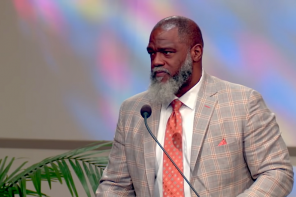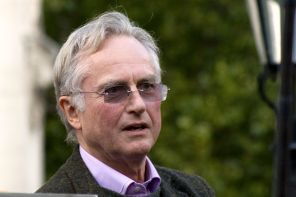George Carlin is dead and it’s about time. If he’d stayed alive any longer, we might have had to watch him watch us as we are, as we remain incapable of changing, and that would have been unbearable.
At the end, he started to rail in ways that weren’t so funny any more, partly because his brand of humor had been franchised, partly because he got so, well, serious. As the world sagged deeper (into debt, into religion, into waste, into humorless sincerity), he bobbled at the top, reaching for some remembrance of opportunities past. So it became less about how ugly pro-life women were or why he wanted to screw the redhead at the convenience store. It wasn’t even about “the fucking church people” or “mindless religious robots.” Such descriptors made him the go-to religious banger among comedians during his post-Sixties ascent. Instead, his latest specials and interviews were knit with remorse. “I think the human race has squandered its gift,” he said, “and I think this country has squandered its promise. I think people in America sold out very cheaply, for sneakers and cheeseburgers.” Another time he paralleled the product with piety. “I think this species had great, great promise, with this great upper brain that we have, and I think we squandered it on God and Mammon.”
Most remembrances of Carlin have lingered on his wicked wordplay and obscenity. As Slate’s Joshua David Mann remarked, “He got almost 30 years of mileage out of examinations of the words cornhole and dingleberry.” In such posthumous appraisals, Carlin’s religion gambits serve as an obituary paragraph break that points out just how serious his critique was. This wasn’t all epithets and pussy jokes, people: this was real social satire.
And maybe it was. Carlin repeated many lines about God, Christ, Catholics and the “bullshit story” of religion; lines which, upon deeper review, suggest he wasn’t the most sophisticated raconteur on the anti-religion rounds. If he did anything original to religion or religious ideas, it was to formalize a flattened image of the believer in such a way as to transition American stand-up away, finally, from the ethnic punchline. Now, instead of Jews and money, jokes could circle the unspecified devoted dolt and his distracted dick-swinging God. Yes, a he He might be, but a she He ain’t, since “no woman would or could fuck things up like this.”
If there was a God, he was an “incompetent” who “doesn’t give a shit.” After all, look at the results: “war, disease, death, destruction, hunger, filth, poverty, torture, crime, corruption, and the Ice Capades.” “This is not good work,” he appraised, “Results like these do not belong on the resumé of a Supreme Being.” Carlin needed a God, wanted a God (“When it comes to believing in God, I tried… I really tried.”), but couldn’t release himself from some rudimentary requirements of such a God. Disappointment thus littered the confessional. After all, how could the Almighty be all-powerful if “everything he ever makes… dies”? Carlin’s jokes about God depended on omniscience and omnipotence, reason and consistency. “If God had intended us not to masturbate he would’ve made our arms shorter,” is humor reliant upon a divinity of Christian logic and coherence.
Like so many of his cultural brethren, Carlin could not begin to uncurl his fingers from the rosary beads he spat upon. Sure, he didn’t grow up with “Sister Mary Discipline” who switched bad boys with razor-sharpened sticks. As he testified frequently, he attended the sort of parochial school that promoted more Dewey dialogue than catechistic rehearsal, leaving in its wake a lot of cultural Catholics and few committed Sunday visitors. “They made questioners out of us,” he said, “which is maybe why so many of us lost the faith.” Despite the wicked, foundational reason imprinted by his Morningside Heights parish, Carlin relied upon easy Catholic insults his whole life. “I used to be Irish Catholic and now I’m American. You know, you grow.” The tug between sin and salvation producing obvious entendre: “They were always pushing for pain and you were always pulling for pleasure.” Later books and HBO specials toyed with the faux sacrilege of a celebrity Jesus. “So, not all of the New Testament is true,” encouraged a reporter to Carlin’s Christ. “Nah,” he replied, “Some of that gospel stuff never happened at all. It’s just made up. Luke and Mark used a lot of drugs.” Typical among his riffs was his reply to the existence of angels. “What is all this shit about angels? 3 out of 4 people believe in angels. What? Are you fucking stupid?” Listening to Carlin offers no penetrating critique, only the slightly mortifying pleasure of tailing someone with Tourette’s as they wander the aisles of a Hallmark store.
To suggest Carlin isn’t quite the humorist he might have been had he imagined a more differentiated religious landscape isn’t to prescribe as much as it is to reminisce about the origins of the form. If Jerry Seinfeld is right that, “George downright invented modern American stand-up comedy,” it is worth remembering that this modernity emerged from an amalgamated Lyceum soil of minstrelsy, vaudeville, and humorist monologues that produced as many Mark Twains as it did Eugene V. Debs’s and Robert Green Ingersolls. The age of The Onion and The Daily Show hardly needs reminder that comedy has political purpose, but Carlin’s religious rigidity (God either was or wasn’t, sin was either right or wrong, priests were either pious or pricks) shows the unreason of unthinking freethought.
Carlin isn’t alone. We are in an era swarmed with more footnoted friends (such as Sam Harris, Christopher Hitchens, and Richard Dawkins) carrying Carlin’s rage to pedantic positions about topics divine. Like Carlin, all of these writers share a basic sense that fools follow gods into wars, into idiotic presidencies, into social control. Consider Susan Jacoby’s The Age of American Unreason (Pantheon, 2008) which offers in every chapter the same ritual set-up for optimism only to be debunked by low educational standards, video culture, and religious fundamentalism. “Scientists assumed that the expansion of knowledge about every aspect of the natural world would produce a less credulous American public,” she writes, “that assumption was wrong.” Anti-rationalism and anti-intellectualism pervade our public sphere, explains Jacoby, creating a world filled with ersatz conversations and political props. There is no cultural literacy, no civic literacy. There are no serious late night debates, no complex solutions to public problems. A land of “infotainment” makes for disinformation and lousy entertainment.
Whereas the freethinker and the comic once shared a tour schedule and booking agent, now they are bifurcated by genre and accessibility. Both are degraded by the absence of the other, as the quest for quick hard laughter and serious statistical proof press Carlin and Jacoby to extremist corners of inflexible insight. Jacoby, a self-described “cultural conservationist,” might be right that the Bush presidency signals an all-time peak in American idiocy. But such an arrogantly dumb culture isn’t improved by tucked-away reading (as Jacoby prescribes) or by more cussing rage against the machine (as Carlin models). Rather, it is by multiplying the mediums, elaborating the contexts, exasperating the options.
Jacoby and her atheist brethren are convinced that our contemporary moment is formed by the reigning power of the Religious Right and the acquiescing self-indulgence of the Ironic Left. Missing altogether from these profiles is the recognition that amidst all the anguish and low test scores there has been, like, a lot of culture. We don’t live in an age with fewer words, or fewer places to produce words, or fewer genres, or fewer opportunities to invent genres. Indeed, it seems fairly obvious to even the most geriatric Amazon shopper that this is a world seething with voices finding volume.
George Carlin would mock this abundance even as he occupied it, staring down blog solipsism and paparazzi reality programs with cursing aplomb. Unlike Jacoby, Carlin didn’t believe the youth of America needed more Modern Library and less Good News Bible. Rather, he thought that they needed to know the difference, and to recognize the absurdities of their own devotions to one, to other, to them all. Staring at us onstage, he asked (commanded, barked, insulted) that we stop thinking for one minute that we aren’t being made the fool, time and again, by every promise we make, every secret we accept, every hand we caress. It’s all (to paraphrase) fucking pieces of fucking shit, and we should know that, by now. That we don’t, quite yet, is a lesson not to be learned by the sonorous freethinker from heavy pages. Rather, it’s from voices in the dark, hustling to get us to smirk at our own neediness. “If there is a God, may he strike me dead,” Carlin used to shout to his crowd. Whether he did, or He didn’t, matters a lot less than Carlin couldn’t help but ask, couldn’t quite decide whether or not he wanted to go.




